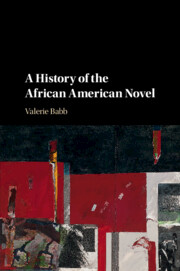Book contents
- Frontmatter
- Dedication
- Epigraph
- Contents
- List of Illustrations
- Acknowledgments
- PART I HISTORY
- PART II SIGNIFICANT GENRES OF THE AFRICAN AMERICAN NOVEL
- Introduction: Forms and Functions
- 8 The Neo-Slave Narrative
- 9 The Detective Novel
- 10 The Speculative Novel
- 11 African American Pulp
- 12 The Black Graphic Novel
- 13 African American Novels from Page to Screen
- 14 Novels of the Diaspora
- Coda
- Appendix
- Notes
- Works Cited
- Index
10 - The Speculative Novel
from PART II - SIGNIFICANT GENRES OF THE AFRICAN AMERICAN NOVEL
Published online by Cambridge University Press: 28 July 2017
- Frontmatter
- Dedication
- Epigraph
- Contents
- List of Illustrations
- Acknowledgments
- PART I HISTORY
- PART II SIGNIFICANT GENRES OF THE AFRICAN AMERICAN NOVEL
- Introduction: Forms and Functions
- 8 The Neo-Slave Narrative
- 9 The Detective Novel
- 10 The Speculative Novel
- 11 African American Pulp
- 12 The Black Graphic Novel
- 13 African American Novels from Page to Screen
- 14 Novels of the Diaspora
- Coda
- Appendix
- Notes
- Works Cited
- Index
Summary
Speculative fiction is a deliberately broad term meant to highlight the interconnections across forms employing the unreal: science fiction, fantasy, gothic, horror, utopian writing, and Afrofuturism, a designation applied to speculative fiction that situates black history, concerns, and experiences in twentieth- and post-twentieth-century technoculture. The genre uses the fantastic to question hierarchical ideologies that subordinate, warp, or exclude experiences not deemed to conform to preset norms, and to offer new relational modes in their stead. It is very much concerned with the immediate actualities of racism, classism, ableism, heteronormativity, and with deconstructing the classification systems that give rise to them. The genre rarely poses easy resolution, not even when depicting seeming utopias; rather, it sparks thought as to why dystopic tensions seem a perpetual part of existence.
Traditions of speculative fiction have long been present in black writing. The gothic qualities of slave narratives in which the enslaved have preternatural visions of their freedom or capture; the utopian hopes of black abolitionists imagining a better world either in a truly free United States, an escape to Canada or Europe, or a return to Africa; and the figuration of tricksters or conjurers as superhuman counterpoints to white dominance are all instances. As early as Sutton E. Griggs's Imperium in Imperio (1899), Pauline Hopkins's Of One Blood: Or, the Hidden Self (1902–1903), and E. A. Johnson's Light Ahead for the Negro (1904), black writers have employed elements of speculative fiction to examine the dangers of narrowly seeing one existence as the norm, of initiating violence and aggression against a perceived other, and of destroying humanity and the natural world.
When it first appeared in The Colored American Magazine, Pauline Hopkin's Of One Blood was described as “A most powerful psychological novel, [that] deals in no uncertain terms with both the temporal and spiritual solution of the greatest question of the age – The Negro” (CAM 5.6, October 1902, 478).
- Type
- Chapter
- Information
- A History of the African American Novel , pp. 253 - 274Publisher: Cambridge University PressPrint publication year: 2017

